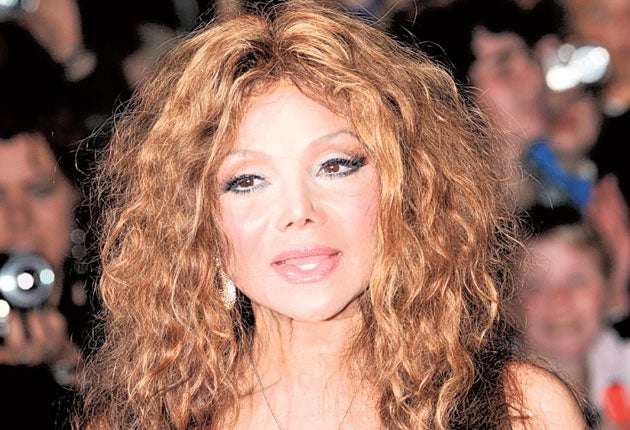David Lister: We expect more culture from the BBC, not just digital trickery
The Week in Arts

Here, Mr Paxman, is your very own starter for 10. When did the BBC last put on a play by Anton Chekhov? No answer. I'll offer it to the other team. Which I did this week. The team that runs BBC Arts. And they couldn't tell me either.
I decided to go to meet the BBC Arts people, because arts on the BBC is too little talked about and written about. Most discussion of the BBC concerns the licence fee or which channels to axe or Jonathan Ross's salary. It's too easily forgotten that it is also the largest provider of culture in the country. The new Culture Secretary, Jeremy Hunt, clearly forgot this as his first major speech on the arts didn't mention the BBC.
Yet the BBC broadcasts 1,700 hours of arts programming a year, and runs what sometimes feels like almost as many orchestras and takes what feels like almost as many people to Glastonbury. But the 1,700 hours do make it the pivot of the nation's culture. New programmes announced this week look interesting, not least a series on Renaissance paintings which will use digital photography to give TV viewers access to intricacies of technique and details normally only seen by conservation experts.
And I'm particularly intrigued by a new way of presenting the Proms, which will become evident in a few weeks' time. Musicians, rather than conductors, will be at the fore, with individual orchestra members talking about the works and how their playing will affect it, and then becoming a visual focus.
But if the BBC is to boast about its 1,700 hours, and if it is the nation's biggest provider of culture, then it also has to address what it does not provide in all those hours. As my earlier quiz question, with its blank response from those in charge, demonstrates, classic drama has not had a place on our screens for years, possibly decades. For a public service broadcaster, that is a disgrace.
But it's not the only omission. And if the new BBC mantra is that it delivers 1,700 hours of arts programming a year, then as well as praise for when it gets it right, it deserves closer scrutiny of what it does not deliver. Though it boasts a new season celebrating the novel, the BBC does not have on television one regular show dedicated to books. Sky Arts does, and it's rather good. The BBC sprinkles books items around various shows, but does not consider literature worthy of its own weekly programme. "We're open to conversations about this," the arts team told me, and it's a phrase I must learn to use myself when I don't intend taking any action.
It's difficult, says the arts team, because a novelist talking about a book is well suited to radio but makes poor television. And it is in rationales like that one that you can see the difference between TV people and normal people. Most of us non-TV human beings actually enjoy intellectual stimulation and aren't obsessed with production techniques. What's so terrible about a talking head that the very idea makes TV people break out in a cold sweat?
Carry on the Jackson family tradition
Michael Jackson was murdered, claimed his sister and fellow singer LaToya this week, a year after the star's death. She added that there was a money-making conspiracy behind the alleged murder, as the conspirators knew that Michael's death would provoke sales of his back catalogue.
She said: "He was murdered for his catalogue and they knew that, and they knew Michael was worth so much more dead than alive." She left it unclear who these conspirators might be. But it's a rather unsisterly assumption that Michael had no more big-selling music in him, and that his planned tour was not going to make huge sums of money. Still, LaToya has at least helped the pop lexicon. With the death of Michael, the phrase Wacko Jacko seemed to disappear. Now, with a different member of the family, it's back.
Strike before the iron gets hot
The arts haven't yet been defined as a "frontline service" and you can bet they never will be, so they remain largely unprotected in the cutting season. Be in no doubt that the 25 per cent cut to the Culture Department budget in the autumn, coming on top of Arts Council cuts already announced, will leave a very different cultural landscape.
I imagine that some of the chief casualties will be planned extensions or redevelopments to key buildings like Tate Modern, the British Museum and the National Theatre. Sir Nicholas Hytner, head of the National Theatre, wrote a stirring article in the London Evening Standard about how the £70m redevelopment he has planned will give the capital a stunning building, with new terraces for the public overlooking the Thames, educational facilities, etc.
There isn't a cultural term for such an article, but in football parlance we used to call it "getting your retaliation in first".

Join our commenting forum
Join thought-provoking conversations, follow other Independent readers and see their replies